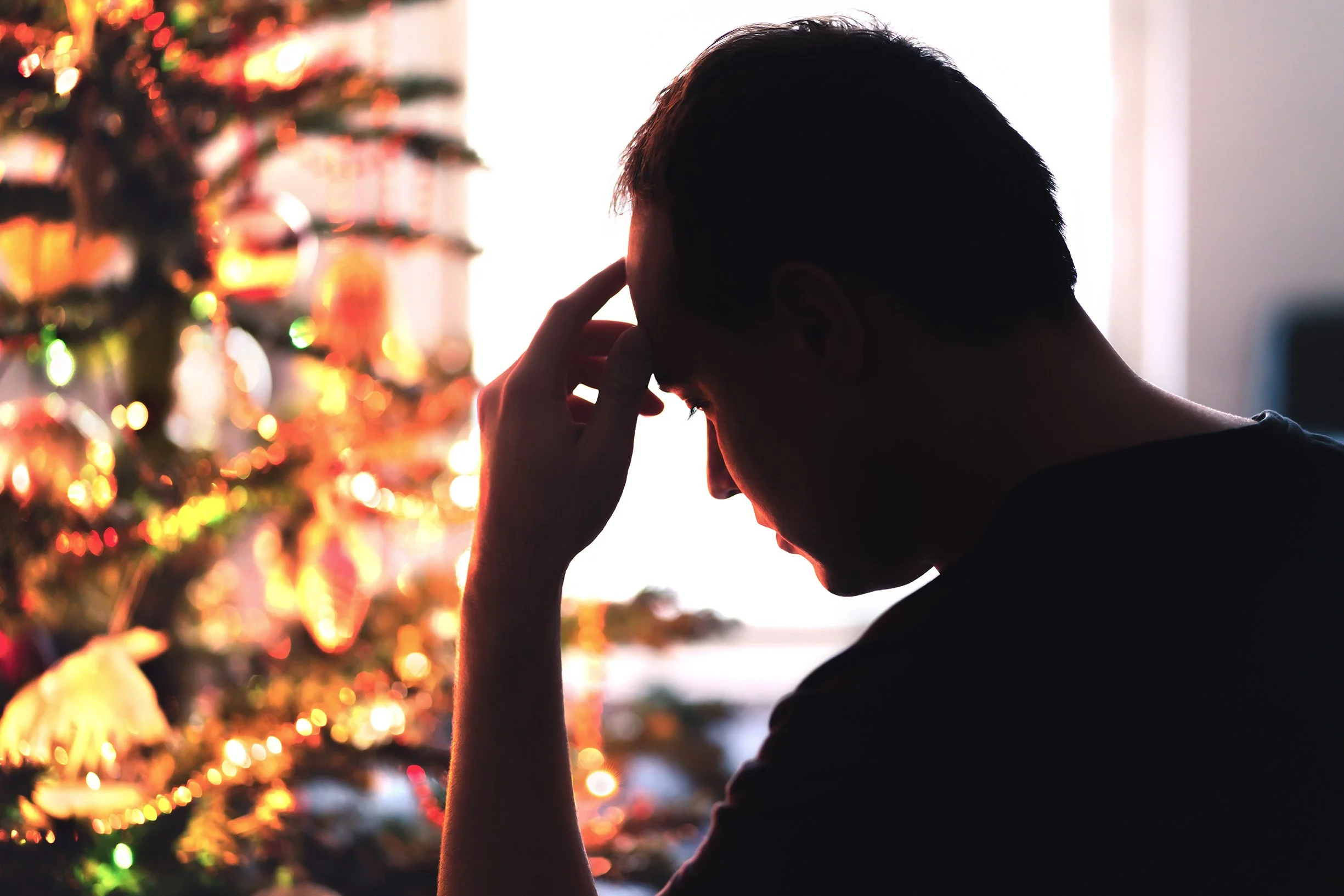When Holiday Anxiety Creeps In: Understanding the Emotional Weight of the Season
The holidays are supposed to feel joyful, restful, and cozy—right?
But if you’ve ever found yourself feeling overwhelmed, disconnected, or just…off during this time of year, you’re not alone.
Maybe you're showing up to social gatherings, doing your best to be present, but something inside still feels heavy. Maybe your body feels tense and your mind is racing, even when nothing seems obviously wrong. You might find yourself wondering: “Why am I not enjoying this?”, “Why do I feel so anxious?”, or “Shouldn’t I be feeling more grateful?”
Holiday anxiety doesn’t always look like an emotional spiral or a panic attack. Sometimes it’s more of a quiet unsettling undercurrent. A subtle tightness in your chest. A sense of dread that creeps in when the calendar hits October. A heaviness you can’t quite name.
In this blog, we’ll be unpacking what might really be going on.
Why Holiday Anxiety Happens
We often expect the holidays to feel warm and fuzzy. But for many people, this time of year actually amplifies feelings of anxiety, dread, and disconnect. Here are just a few reasons why:
Increased Social Demands
Even if you love your people, this time of year can bring a lot of interaction. Family gatherings. Group texts. Holiday parties. End-of-year catchups. It’s easy to feel overstimulated or stretched thin, especially if you're more introverted or just tired.
Family Dynamics
Being around family can bring up old roles and patterns. You might feel pressure to keep the peace, manage expectations, or avoid conflict. Even if you have a loving family, it’s common to feel a pull between who you are now and who you used to be around them.
Financial Pressure
Gift-giving, travel, hosting—these costs add up. If you're already carrying financial stress, the holidays can heighten the tension. And even if you’ve budgeted well, the unspoken pressure to “make it special” can feel heavy.
Grief and Loss
The holidays can be a tender time if you’re missing someone, navigating strained relationships, or facing change. Even if you don’t consciously think about the loss, your body and heart often remember.
Disrupted Routines
Sleep, eating habits, movement—everything tends to shift during this season. These routine changes may seem small, but they impact your nervous system and overall sense of stability.
It’s Not Just You—Your Body’s Responding to Something
If you’re already feeling stretched thin—emotionally, physically, or mentally—this time of year can take even more of a toll. And because the holidays are supposed to feel joyful or cozy, it can be disorienting when you feel the opposite. The contrast alone can stir up shame, like “What’s wrong with me for not enjoying this?”
But that emotional dissonance makes sense.
Your nervous system is likely responding to the changes in routine, the added pressure, or the invisible expectations that often come with the season. Even if nothing is objectively wrong, your response is completely valid.
How to Work With Holiday Anxiety (Not Against It)
You don’t have to love this season to move through it with self-compassion and care.
Instead of pushing the anxiety away, try softening around it. Get curious. Gently check in with yourself, like you would a friend.
Here are a few questions to explore:
What part of the holiday season feels most activating for me?
(And can I name it without judgment?)Is there something I need that I’ve been overriding?
(Like alone time, more structure, or a break from social media.)Is there a story I’m telling myself that adds pressure?
(Maybe something like “I should be more present” or “I have to make this perfect.”)
If you're looking for more tangible support, here are a few practices you might try:
Set boundaries. You may not be able to control what others say or do, but you can choose how much you engage, how much you take on, and when to step away.
Make space to feel. Whether it’s five minutes in the car or a quiet evening walk, giving yourself time to name what’s coming up can be grounding.
Lower the bar. You don’t have to show up as your best self in every moment. Let "good enough" be enough.
Find small pockets of comfort. A song, a text exchange, a warm drink, a familiar routine—little moments can be really grounding when things feel uneasy.
You Don’t Have to Push Through Alone
If you’re feeling off this season, it doesn’t mean something’s wrong with you. It means you're human. And your feelings—even the ones that don’t "make sense"—deserve space.
Therapy for Anxiety can help you slow down and listen to what your anxiety is trying to tell you. Together, we can explore the patterns and pressures that get activated this time of year and work toward something that feels more grounded, compassionate, and true to you.
If you’re curious about how therapy might support you through the holidays (and beyond), I’d love to hear from you. Reach out today to schedule a free consultation.

